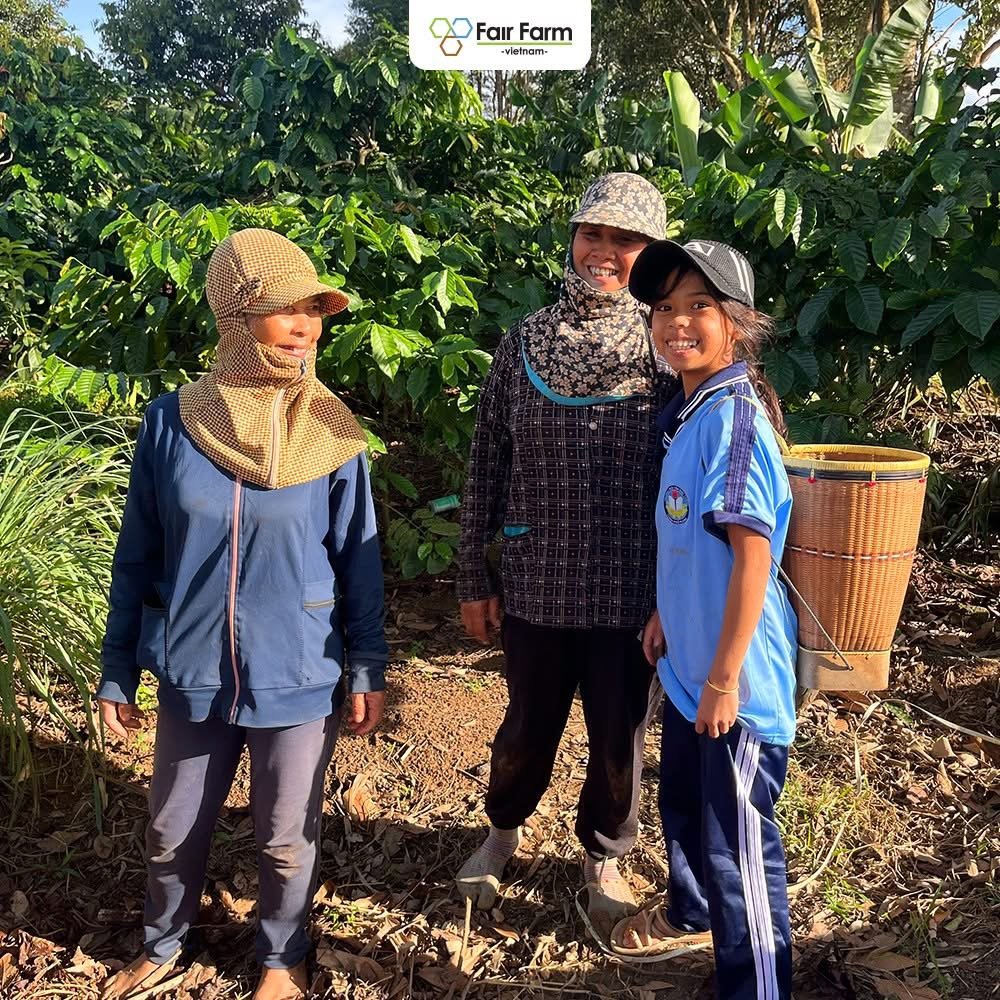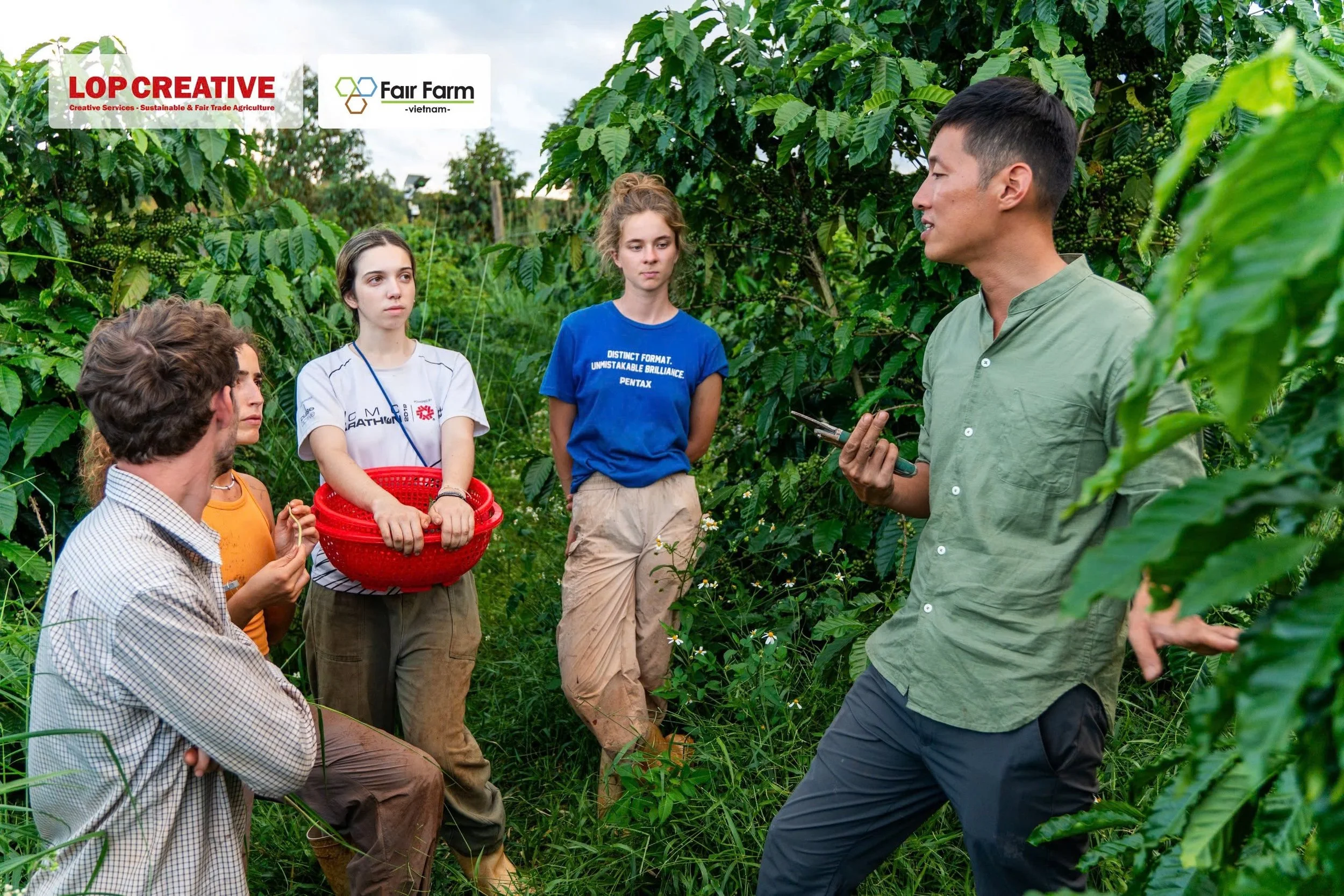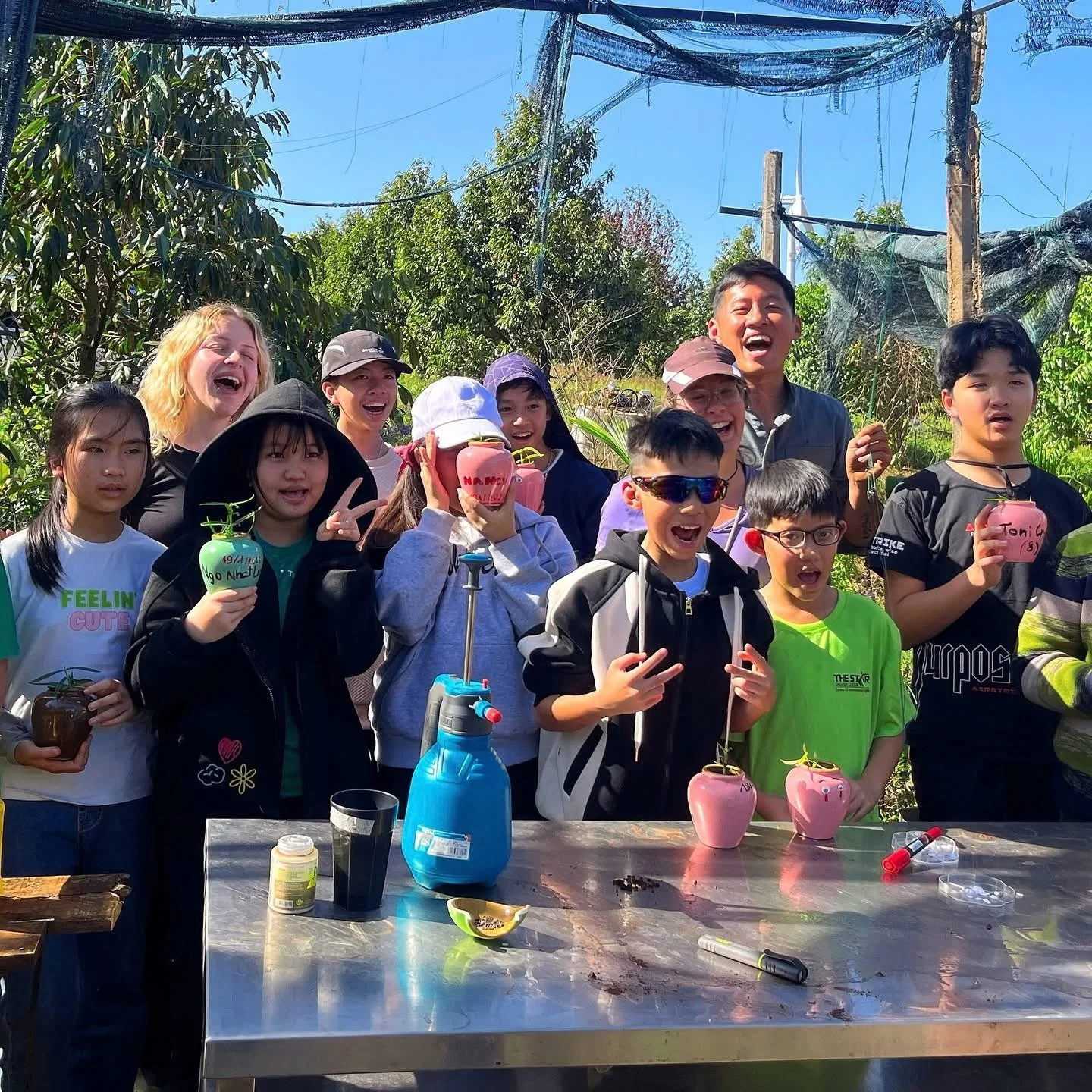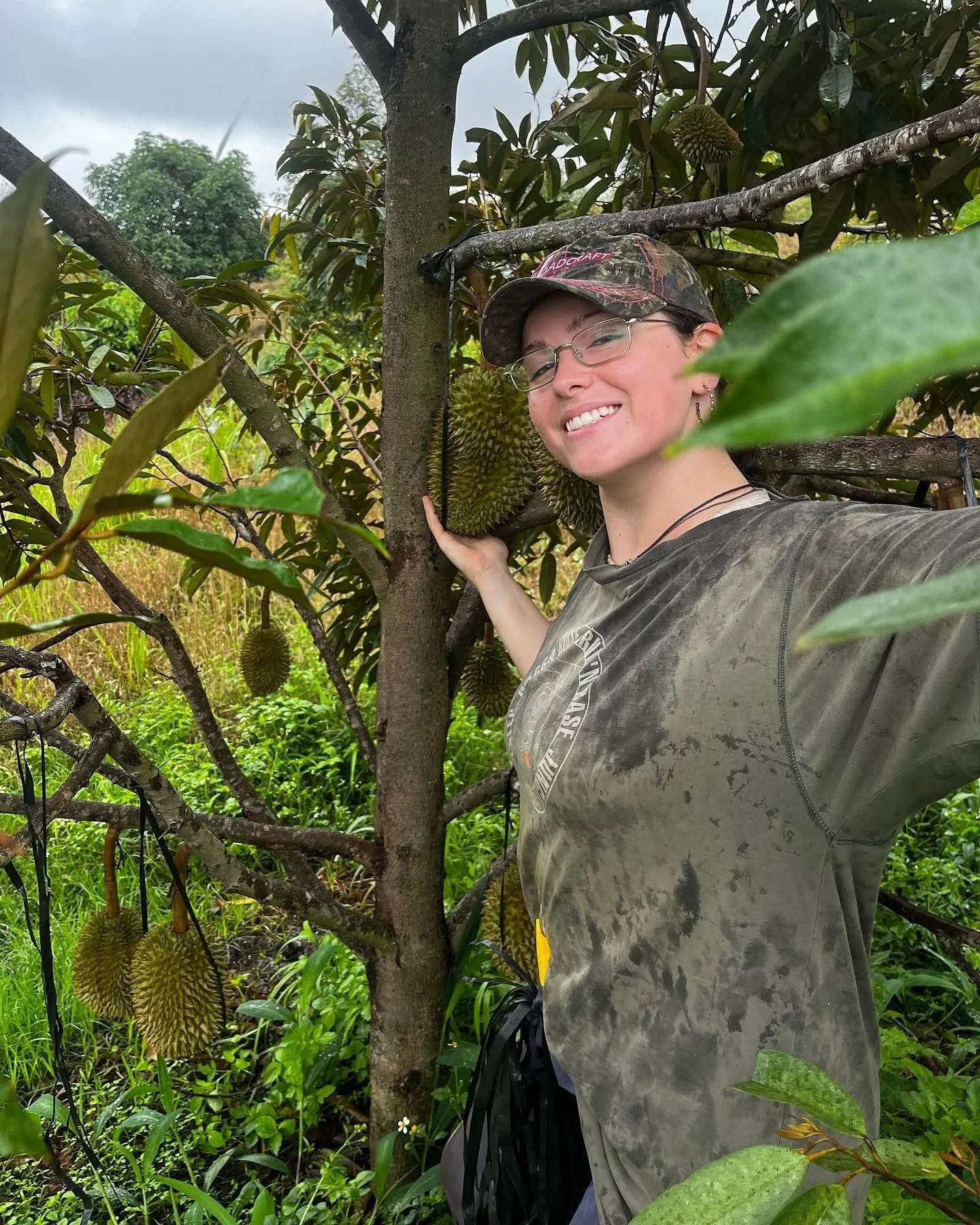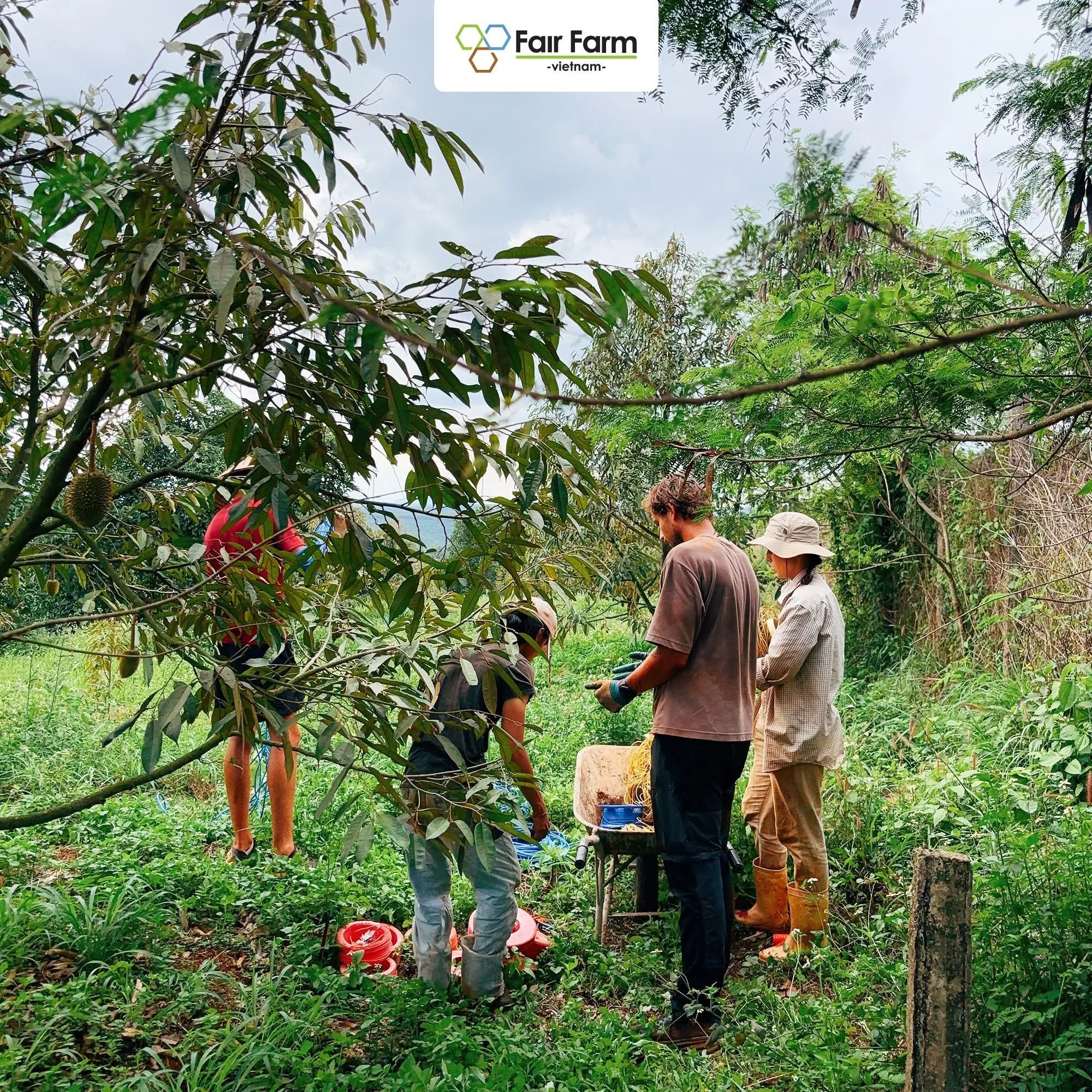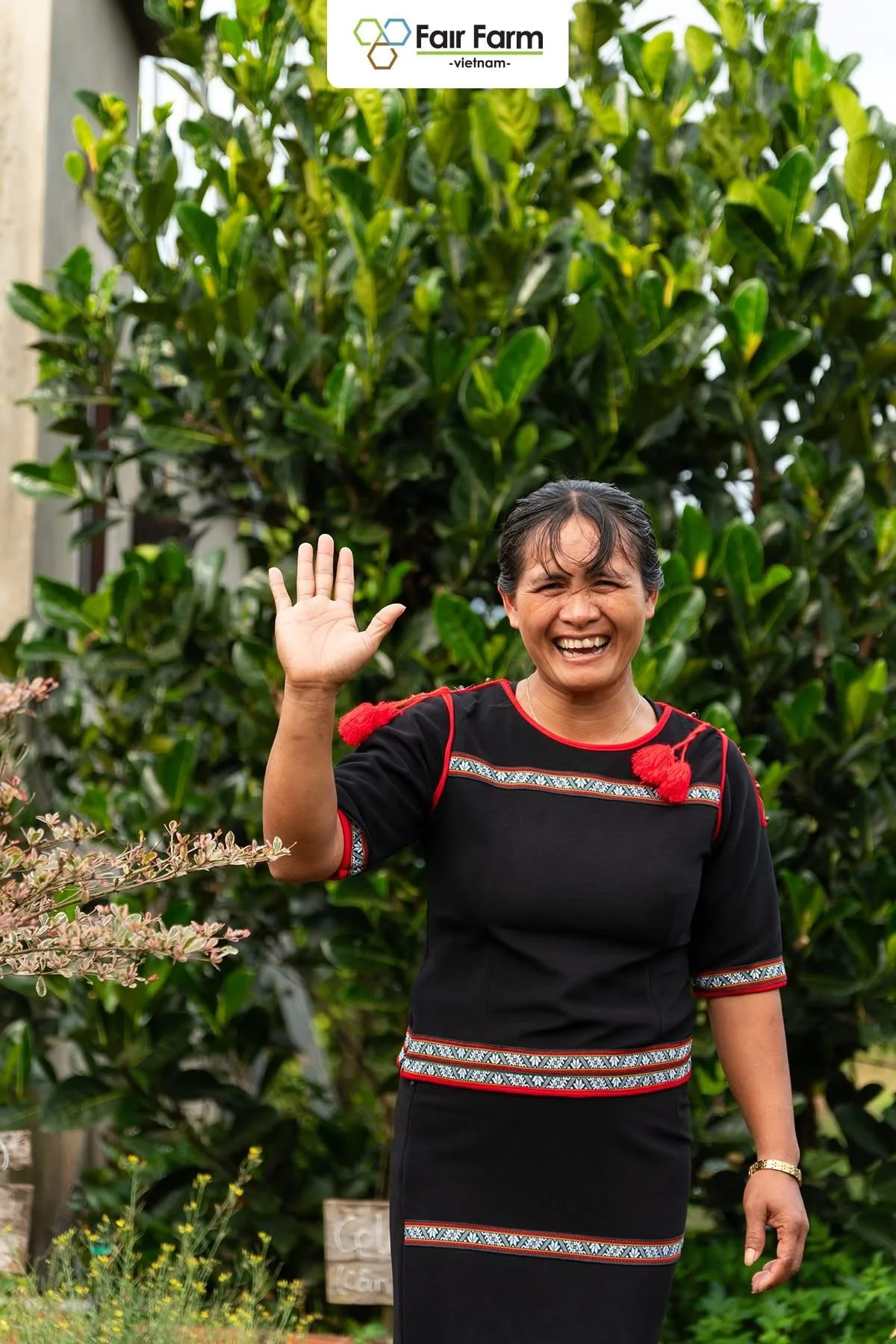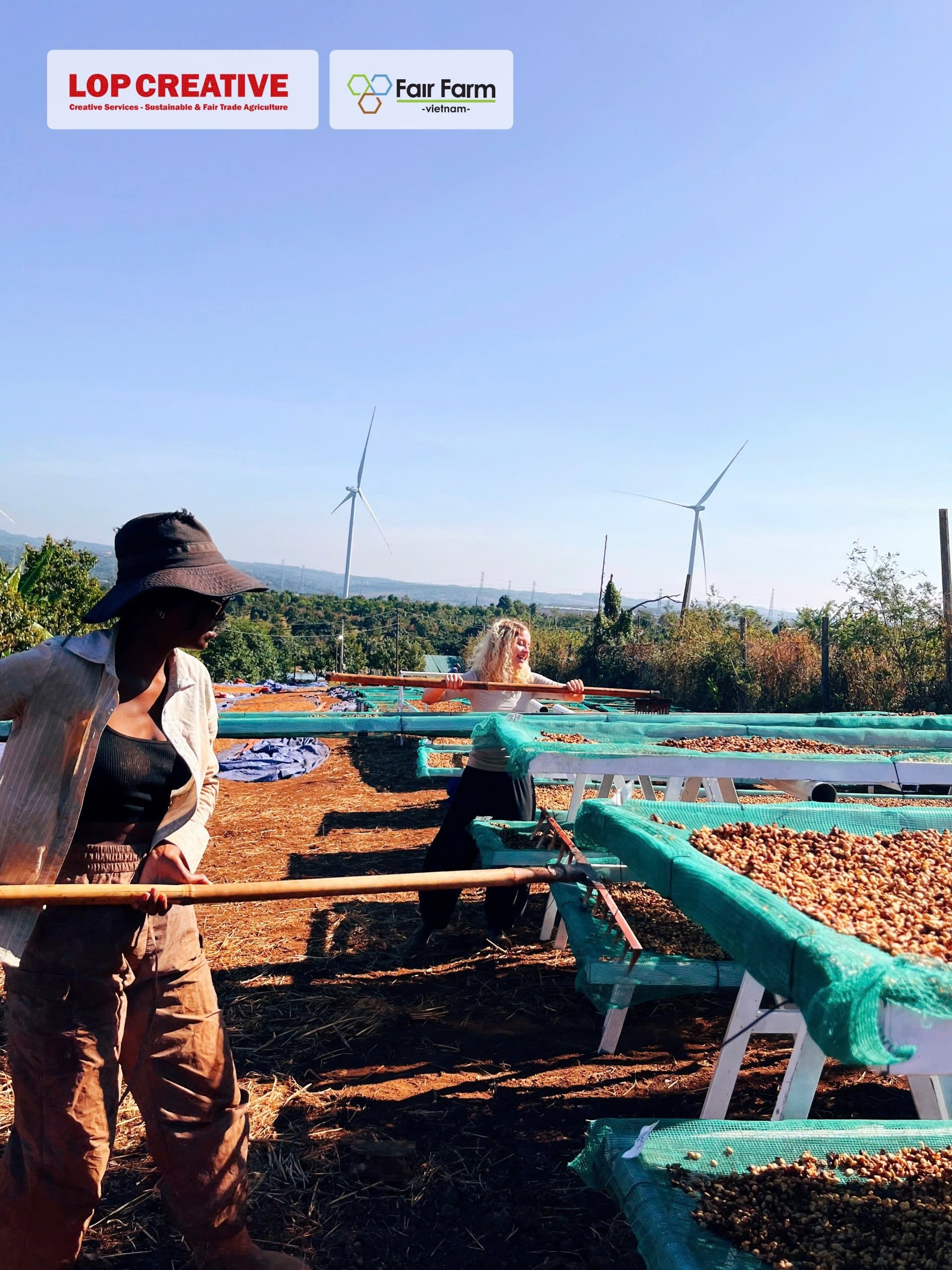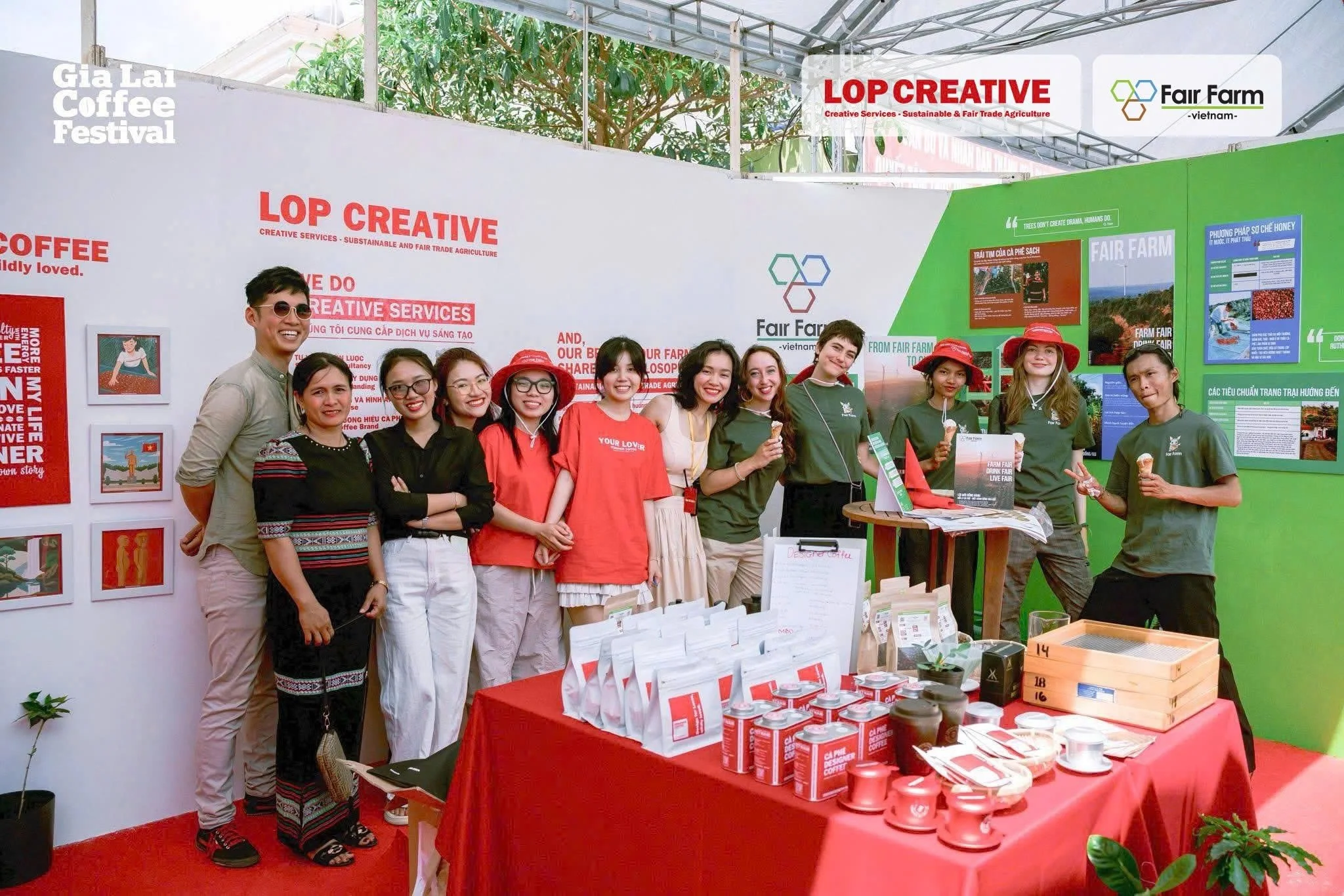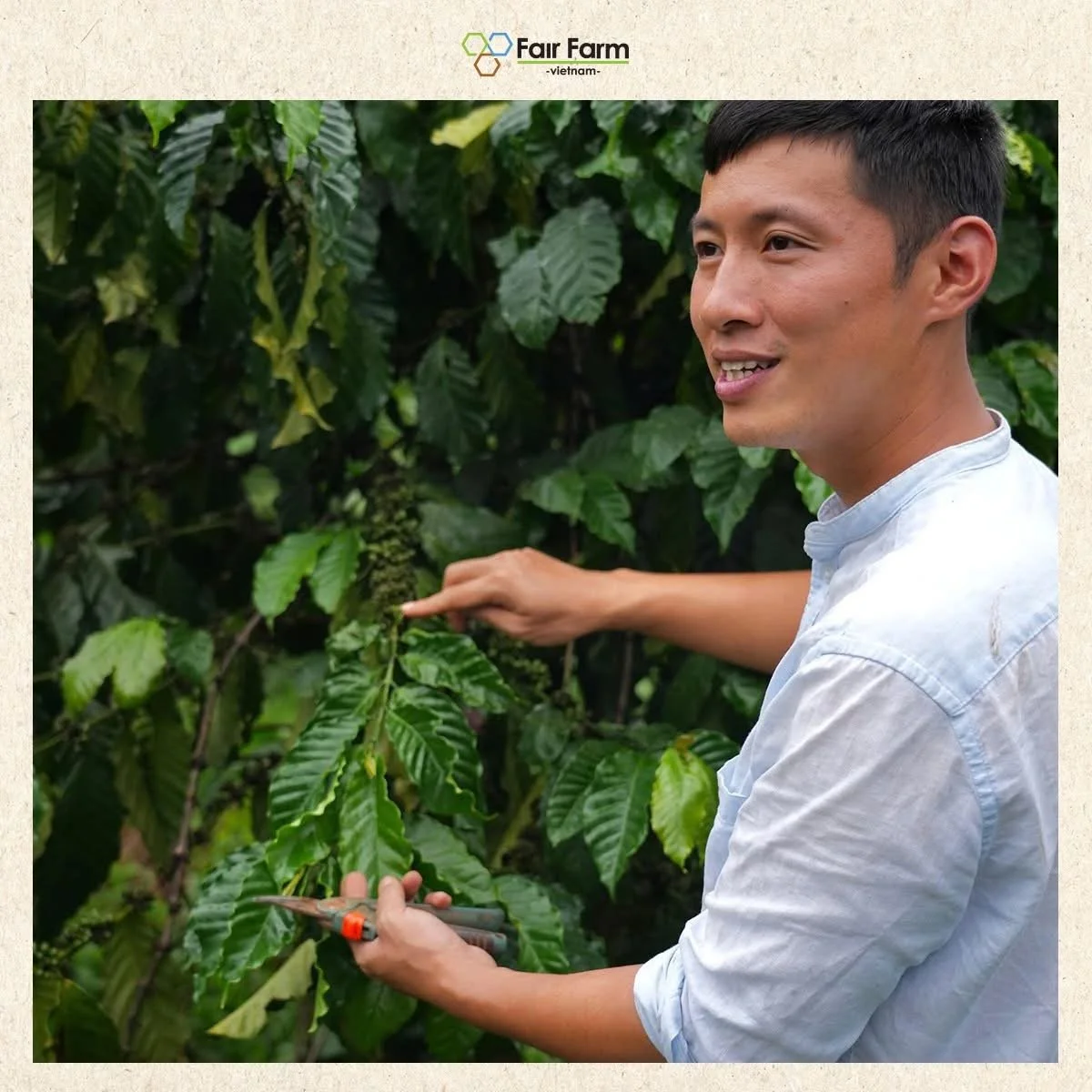Qiu Hao - Founder of Fair Farm Vietnam
From Blueprints to Blooms: An engineer’s vision for regenerative farming
In the heart of Vietnam’s Central Highlands, a new story of agriculture is taking root, led by a generation of innovators trading urban ambition for ecological purpose. At the forefront is Qiu Hao, a 35-year-old former engineer who journeyed from construction sites to found Fair Farm Vietnam, a business pioneering a future built on regenerative, people-powered sustainable agriculture in the Gia Lai province, Vietnam.
This is more than the tale of a career change. It is the story of Hao's personal quest to heal the land, practice deep stewardship, and build a meaningful life rooted in community. Through Fair Farm Vietnam—now a thriving hub for sustainable education and international connection in Pleiku—he is reimagining our local food systems and proving that a life dedicated to nature is not just possible, but profitable.
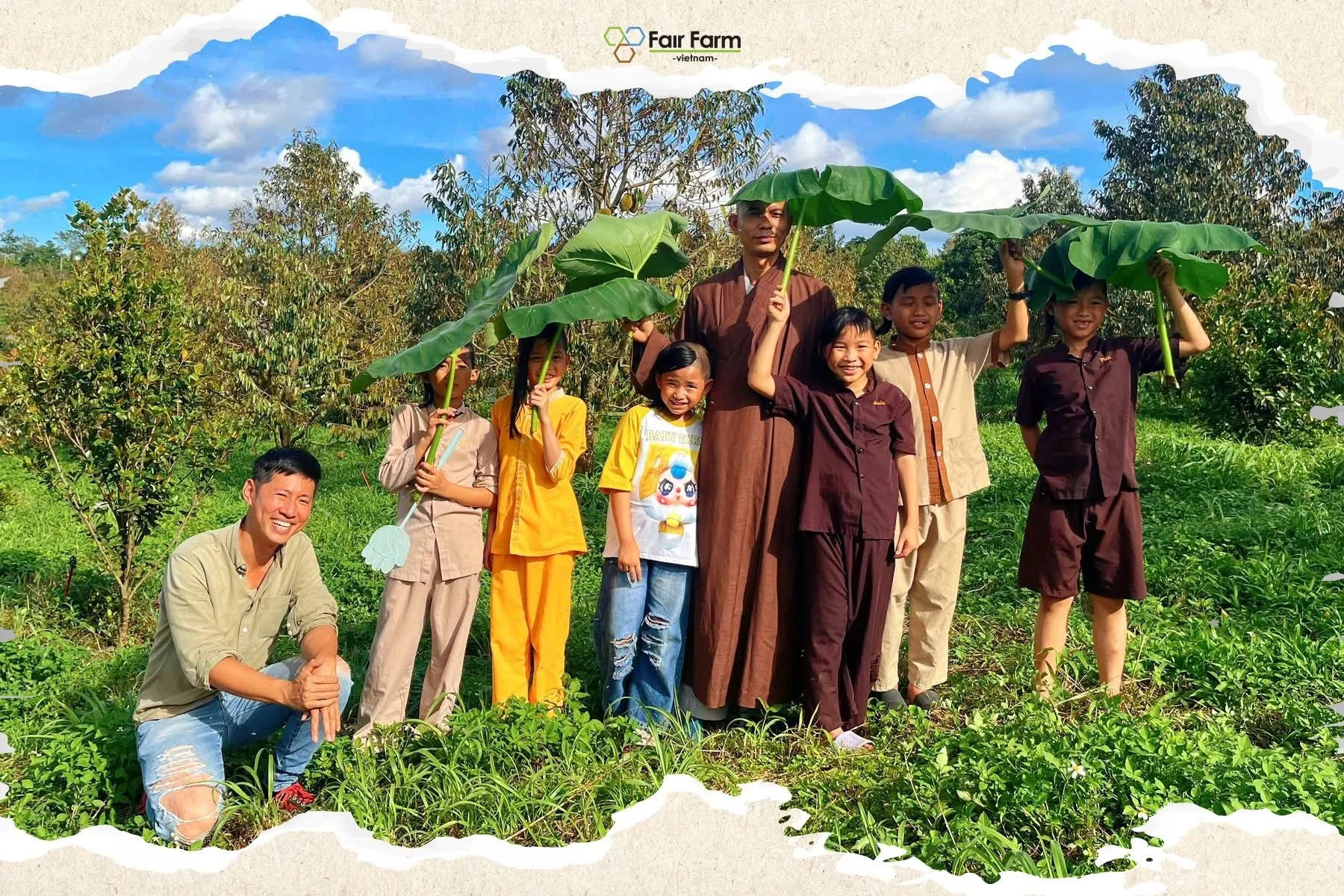
A foundation in Structure and a search for Purpose
With a background in civil engineering, Qiu Hao first applied his skills to the bustling hospitality and construction sectors in Phú Quốc. For seven years, he managed F&B projects, navigating the fast-paced world of tourism. While the work was dynamic, it sparked a desire for a different kind of fulfillment—one built on permanence and tangible connection to the environment. The global pause brought on by the COVID-19 pandemic provided the perfect moment for reflection.
This period of introspection led him back to a simple, shared family dream: to own a small piece of land. “A place to grow our own food, breathe clean air, and create a sanctuary,” he recalls. His search took him across the Mekong and into the Central Highlands. In Gia Lai, a scenic property captured his attention, a place he felt an intuitive connection to.
What began as a plan for a modest one-hectare farm soon blossomed into an 8.5-hectare vision for the future: Fair Farm Vietnam.
The engineer's mindset meets the farmer's soil
*
The engineer's mindset meets the farmer's soil *
Despite having no formal training in agriculture, Hao was driven by a passion for learning and problem-solving.
“I enjoy new challenges and there is nothing you can not learn. Farming was an entire world to discover from the ground up”, he shared.
Initially, he collaborated with agricultural managers to get the farm started. However, he soon realized their conventional approaches differed from his budding vision for a holistic, regenerative system. This inspired him to take the lead himself, diving into a journey of self-education through reading, hands-on experimentation, and learning from every setback.
His engineering background proved to be his greatest asset. “An engineer identifies a problem and designs a solution using the resources at hand. I applied that same logic to farming. Without a massive budget, I had to be innovative, building a system that was both effective and economically sustainable.”
Building a thriving ecosystem for People and Plants
A key insight that shaped Fair Farm Vietnam was the distinction between a farmer and an agronomist. While a farmer focuses on growing and selling crops, an agronomist designs a complete ecosystem—adding value through processing, branding, education, and community engagement.
Drawing on his experience in tourism, Hao built a multi-faceted business model for his farm. By focusing on high-value, storable commodities like coffee, durian, and avocado, he gained the flexibility to sell when prices were favorable, avoiding the market pressures of peak harvest seasons.
More importantly, Hao transformed the farm into a vibrant center for sustainable education and community empowerment. This vision is the heartbeat of Fair Farm Vietnam.
“From the beginning,
I wanted this to be
a place of connection.”
(Qiu Hao, Founder of Fair Farm VIetnam)
“From the beginning, I wanted this to be a place of connection,” he says. The farm actively welcomes international volunteers through platforms like Workaway, creating a dynamic, cross-cultural environment.
Volunteers aren’t just an extra pair of hands; they are integral to the farm's spirit. They assist with everything from planting and coffee processing to maintaining the farm’s nursery and water systems. In return, they receive hands-on education in regenerative practices. This exchange is a cornerstone of the farm's model. "The volunteers bring so much life and energy, It creates a collaborative atmosphere where knowledge is shared freely," he shared. Beyond the volunteer program, this founder has contributed to the innovative agricultural model of Gia Lai province by offering learning tours for local schools and interested groups, providing hands-on lessons in environmental stewardship.
This community focus turns the farm into a living classroom, connecting international youth and local Vietnamese to the principles of sustainable agriculture in a tangible way.
The true yield: freedom, fulfillment, and a flourishing farm
When asked what sustains him through the challenges, his answer is clear: freedom and a profound sense of purpose.
“I am still running a business, but I get to define success on my own terms. We’ve cultivated an environment built on positive energy, where people from around the world can share, learn, and support one another,” he says.
The most visible reward, however, is the land itself. He has watched his farm transform from a landscape depleted by chemical use into a thriving, biodiverse ecosystem. “Three years ago, this land was silent. There were no birds, no insects, no life in the soil. Now, the earthworms, the wildlife—everything is returning. That is the real reward to me”

Challenges and opportunities in modern agriculture
Hao is clear-eyed about the systemic barriers facing Vietnamese agriculture.
The first, he notes, is a powerful cultural shift. “The path for most youth leads to cities for education and careers. It’s hard to draw them back to the countryside once they’ve established a life elsewhere,” he observes.
For those who do stay, access to modern, sustainable techniques can be limited. Financial literacy and business management skills are often lacking, which can lead to a cycle of debt and land sales. According to him, Vietnam doesn’t yet have a widespread apprenticeship-based agricultural education system, combining classroom knowledge with hands-on experience. And that, he believes, is a major gap. Young people who might be interested in farming don’t have accessible pathways to learn both the science and practice of agriculture. Nor do they often see farming as a modern, exciting, or profitable career. Bridging that gap is not only a matter of curriculum—it's a matter of cultural perception, infrastructure, and support. “This is where education and mentorship become so critical,” he says.
On the ground, Hao bridges this gap by focusing on shared values. When speaking with older farmers who are hesitant to change, he frames sustainability in practical terms. “Instead of leading with environmentalism, I might talk about money—how regenerative methods can reduce fertilizer costs or how proper harvesting techniques can fetch a better price. That’s a language everyone understands.”
Sustainability as a system: The philosophy of return
At its core, his philosophy is about creating closed-loop systems.
“How do we ensure there’s still coffee, still avocados, for the next generation?” he asks. “The principle is simple: whatever you take from the soil, you must return. You cannot extract indefinitely.”
Hao champions practices like intercropping and cover cropping, allowing grasses to flourish to feed the soil’s microbiome. “Microorganisms are nature’s processors,” he explains. “They break down nutrients so plants can absorb them. We just need to create the right conditions for them to do their work.” Every element has a role, from the snakes that control pests to the bats that pollinate the durian flowers.
“Nature is a balanced system. Our job is to let it work.”
Balance. Connect.
The power of connection: from direct trade to AI
Qiu Hao is also a vocal advocate for rethinking the agricultural value chain. He points out the immense disparity between the price a farmer receives and the final retail price, whether for coffee or avocados. His solution is to foster direct trade relationships and encourage consumers to know their farmers by buying local.
As a tech-savvy farmer, the farm’s founder embraces AI as a powerful tool for research and strategy. “I can feed it data about my farm—soil type, crops, location—and ask for recommendations. It’s like having a consultant on call. But,” he adds, “it’s a tool, not a replacement for foundational knowledge.”
He believes the ideal educational model is vocational, blending classroom theory with hands-on practice.

“Farming is not something to escape —it is something to rediscover.”
(Qiu Hao)
A new way to live, work, and connect to the land.
The journey of Fair Farm Vietnam is a testament to how youth can bring innovation, a global perspective, and entrepreneurial thinking to one of the world’s oldest professions. By building a model that integrates sustainable farming with community education and cross-cultural exchange, our young farmer is not just growing food—he is cultivating a new way to live, work, and connect with the land.
For a generation navigating an uncertain climate future, it is a kind call to action rooted in direct experience.
“Go out and experiment,” he urges. “Get your hands dirty. Whenever you have a chance, you can visit a farm so you can truly know where your food comes from.” Hao believes this connection is the first step toward a sustainable mindset, a topic he insists is critical for our future. “In the age of global warming, sustainability isn’t a choice, it’s a necessity. But it doesn’t mean you have to spend more money. Often, it’s about being smarter.”
“Go out and experiment.
Get your hands dirty.
Whenever you have a chance, you can visit a farm so you can truly know where your food comes from.”
“If you have the chance, please come to Fair Farm.
Come and experience this for yourself.”
For those ready to take that first step, his invitation is open.
Join us!
Join the Empower Youth4Food movement to spotlight stories like Qui Hao’s—where change begins with a seed, and transformation takes root in the soil 🌾
#EmpowerYouth4Food #SuccessStory #SoutheastAsia #VietnamChapter #SustainableAgriculture #FairFarmVietnam



